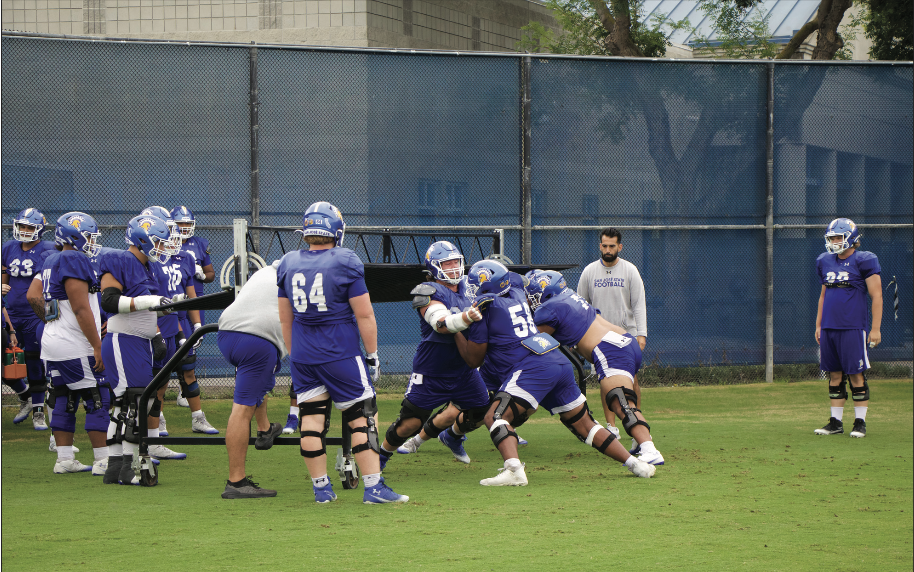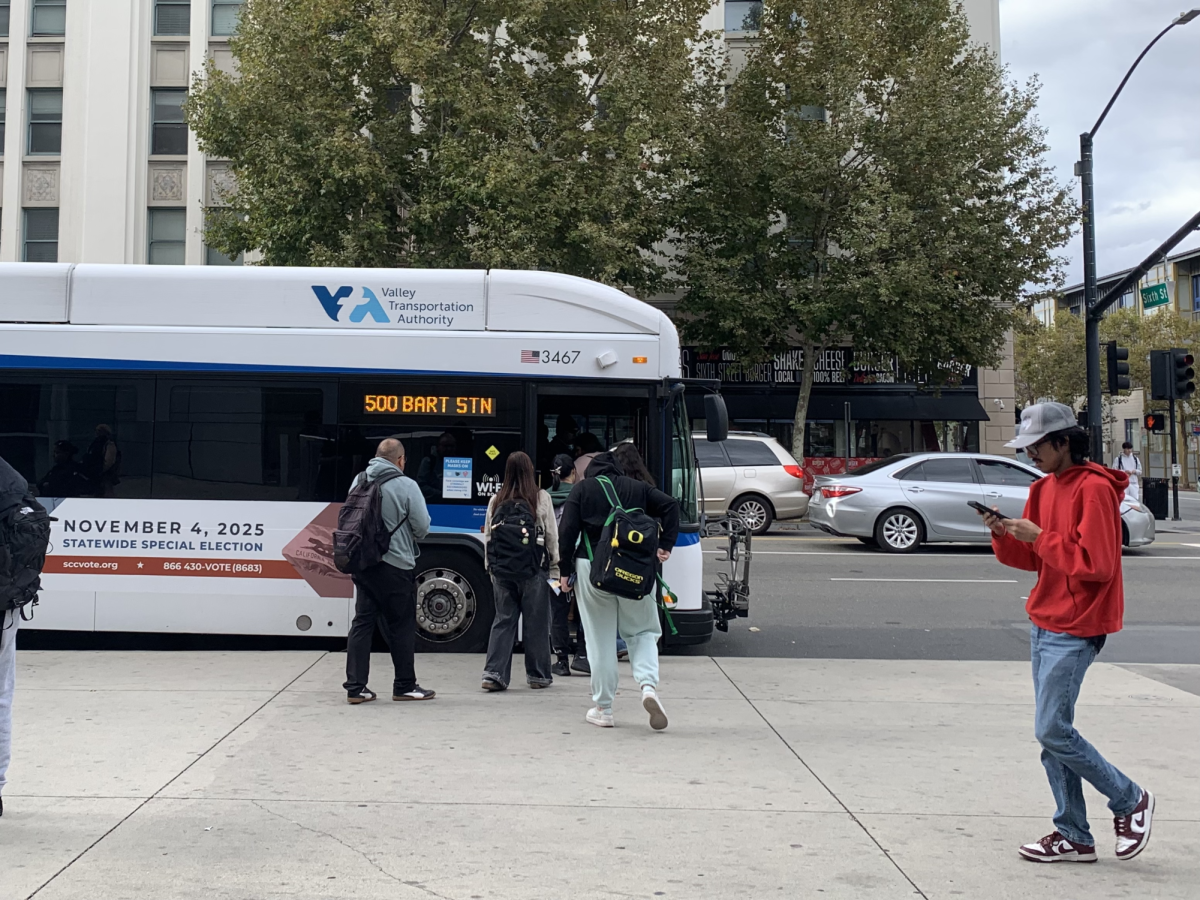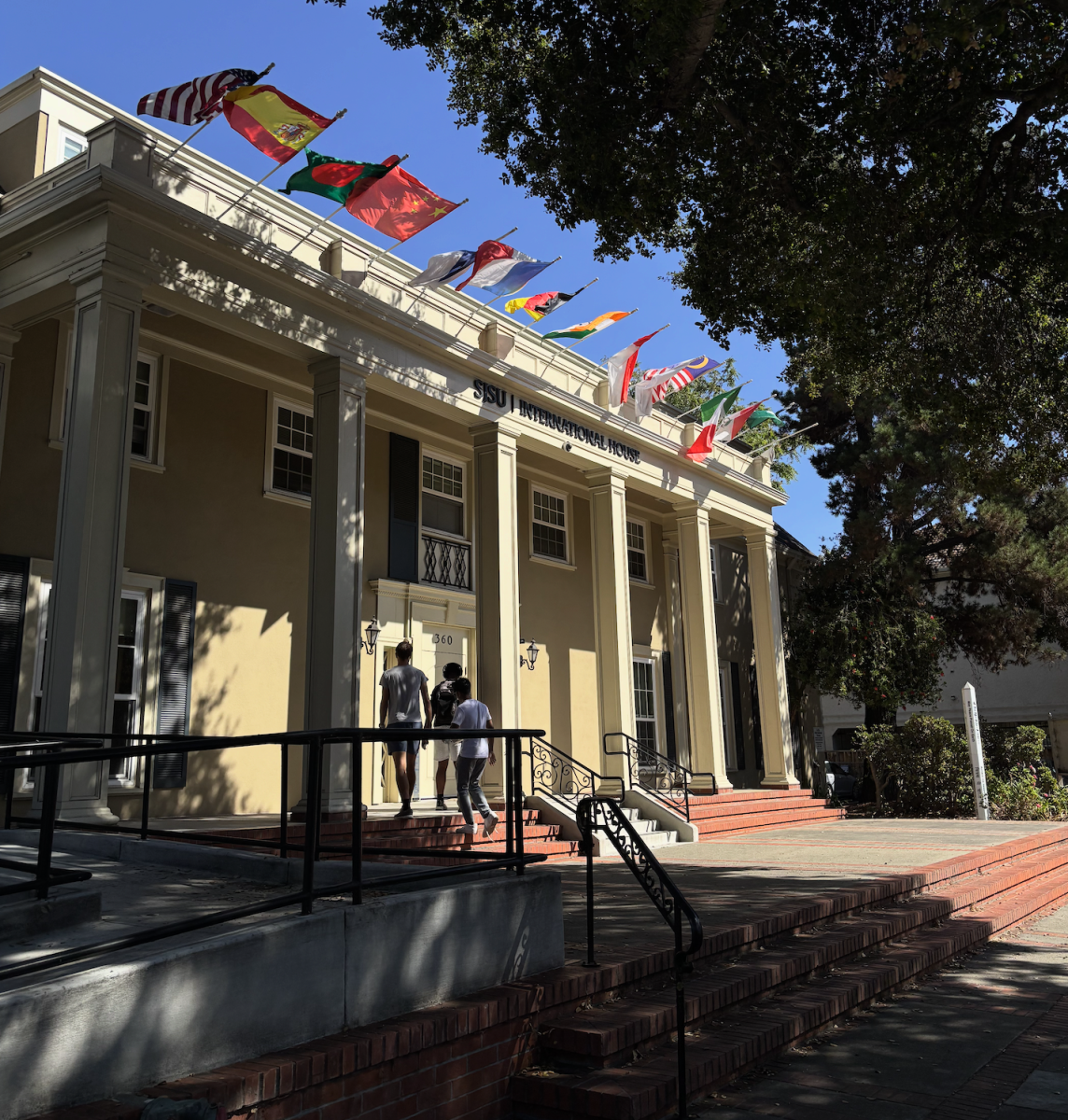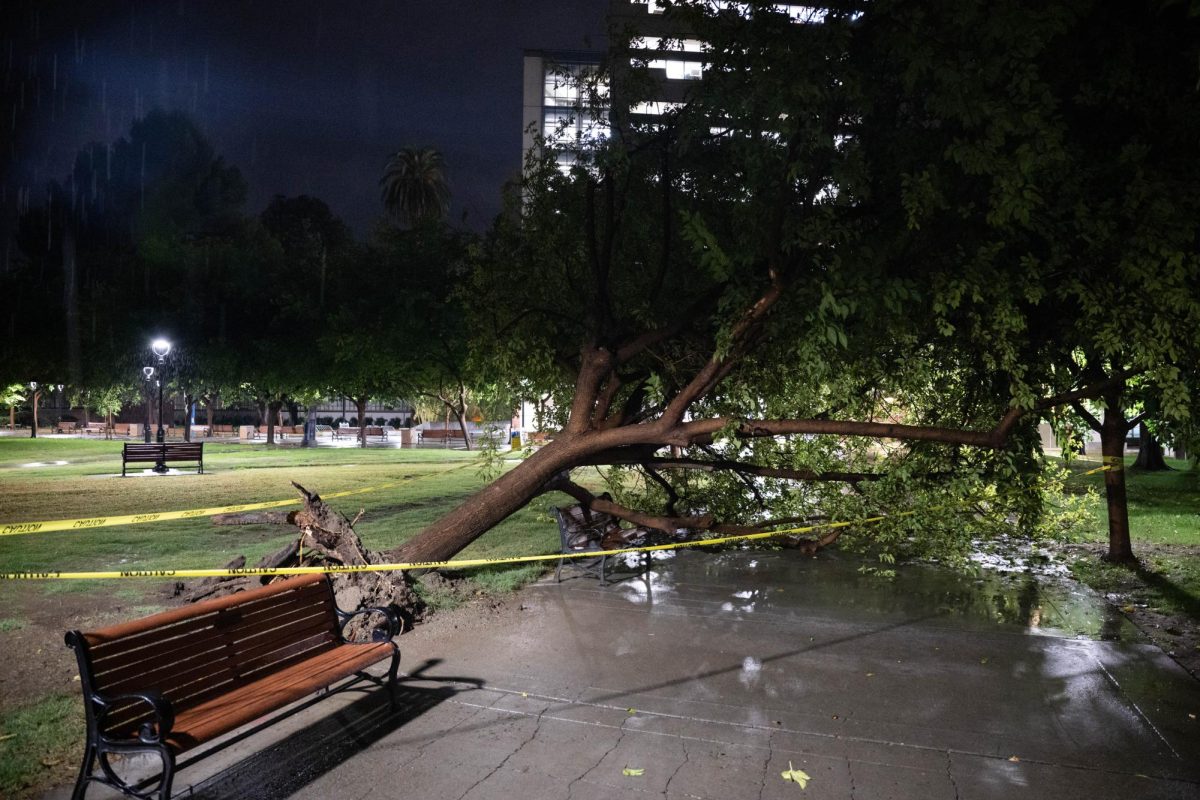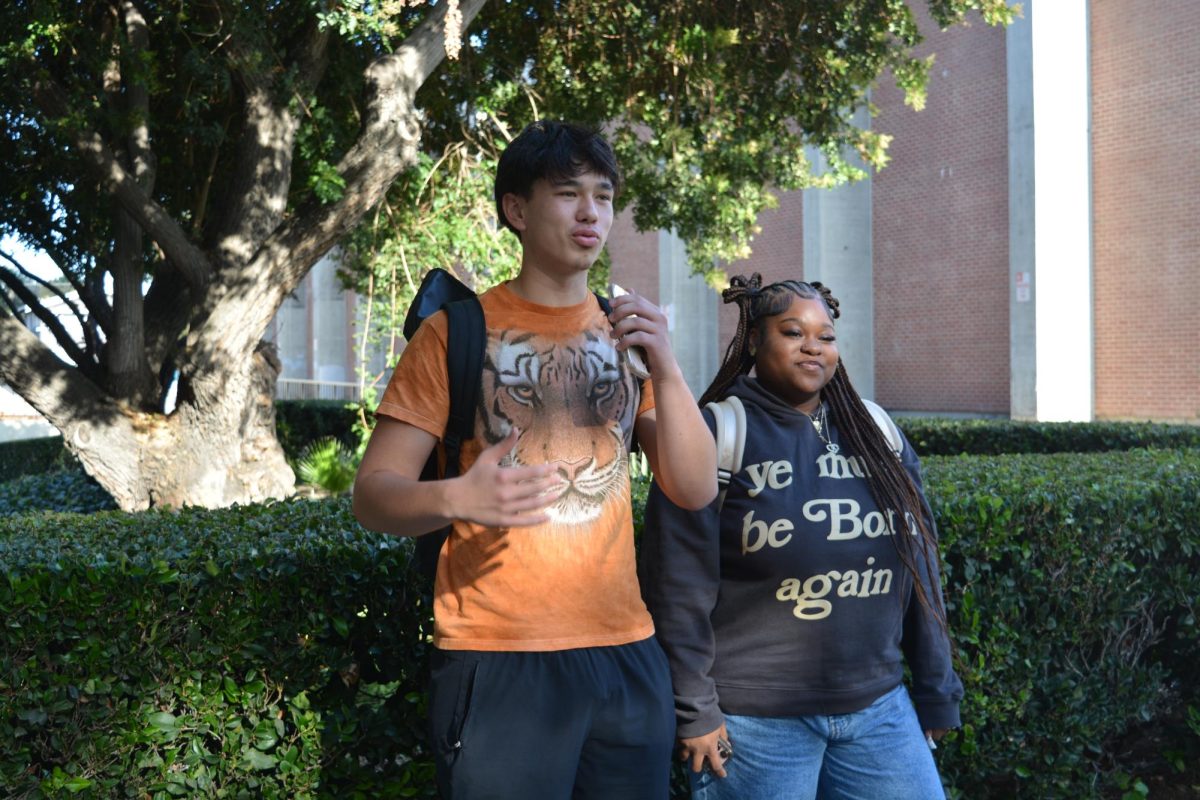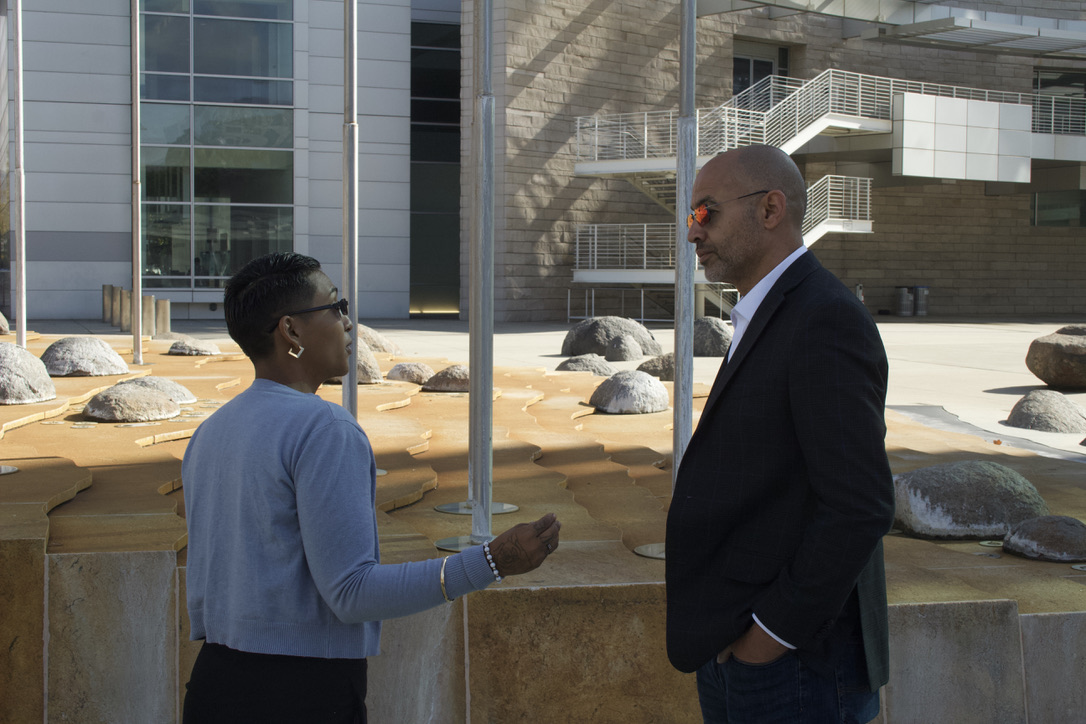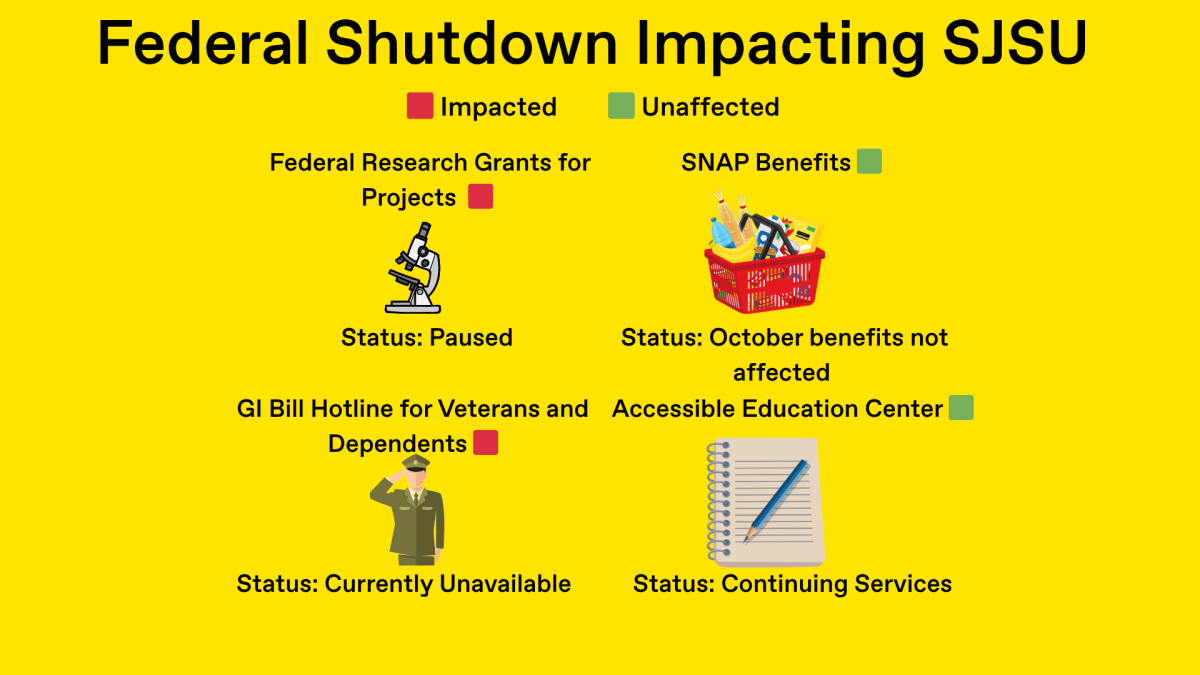A surge in student visa cancellations has left many international students worried about losing their legal status.
As of April 2025, international students across the United States have faced anxiety and confusion regarding their legal status after a wave of student visa revocations and SEVIS record terminations, as documented by the Presidents’ Alliance on Higher Education and Immigration.
Since August, more than 6,000 student visas have been revoked by the federal government, mostly connected to alleged violations or security checks, according to an Aug. 19 article from The Washington Post.
During April 2025, 13 SJSU students lost their visas, according to an April 9 article by Spartan Daily.
Campus protests led by Students for a Democratic Society at SJSU demanded stronger university action and protection for mixed status students, according to an April 10 Spartan Daily article.
Michelle Smith McDonald confirmed that 12 SJSU students had their visas reinstated after federal review, according to an April 30 publication by Spartan Daily.
A federal injunction remains in place while courts consider whether the U.S. Department of State and Immigration and Customs Enforcement violated due process by canceling student visas without notice, according to a May 22 Associated Press article.
Marie Lozada, a sociology student from Venezuela, said she tried not to focus on the issue but admits it’s difficult not to worry.
“Personalmente trato de no enfocarme mucho en eso, pero definitivamente si hay como miedo. El hecho que alguien pueda venir a sacarte así tipo como si nada si da un poquito de miedo,” Lozada said. Which translates to “Personally I try not to focus a lot on that, but definitely there is fear. The fact that someone can come and just take me at any moment does scare me a little.”
Lozada said that she once planned to transfer to another university but reconsidered after learning about higher rates of deportation and visa issues in other cities.
“Me enteré que en San José pasa muchísimo menos que en otros lugares, entonces estoy reconsiderando no transferirme por eso,” Lozada said. Which means “I found out that in San José there are a lot less cases than in other places, so I am now reconsidering transferring.”
The city of San José has several programs to help protect immigrants.
In 2023, city council approved $1.5 million to support legal defense, housing help, and financial aid for families affected by immigration enforcement, according to a July 12 KQED News article.
Lozada believes SJSU should do more to inform and reassure students.
“Creo que si debería haber como algun boletin de informacion o alguna reunion para explicar lo que está pasando,” Lozada said. Translated this means, “I believe there should be some brochure with information or a meeting to explain what is happening.”
You can also find that the city runs a hotline for residents to report Immigration and Customs Enforcement (ICE) activity or get emergency help, according to the Rapid Response Hotline website.
Silvio Naef, a finance third year student from Switzerland, said he personally feels safe but remembers how uncertain things were before he arrived.
“Before I applied for my visa, the visa authority back in Switzerland shut down, so I didn’t know if I could come over here until they reopened it,” Naef said.
Naef said that SJSU reached out to him through email but that most of the paperwork and stress still fell on the students.
“They emailed us about the issue, but obviously they couldn’t do anything. You have to do all the administrative things by yourself.”
According to the SJSU International House website, it serves as a dorm where international and U.S. students live together and learn from each other, with the goal of creating a friendly and supportive place where people from different backgrounds can share their cultures.
Lucia Fuentes, a journalism student at SJSU studying on exchange, said she feels secure within the International House but uneasy outside of it.
“No en la casa internacional, pero en general en Estados Unidos si. Siento que debo ir con mucho cuidado con lo que hago porque a la mínima me pueden echar,” Fuentes said. Which translates to, “Not in the International House, but in the U.S. in general, yes. I feel like I have to be very cautious with what I do, because at the very least I can get kicked out.”
“Viviendo todo lo que he vivido, igual vendría y asumiría el riesgo,” Fuentes said. Translated to, “Living everything I’ve lived, I would do it over again and take the risk.”
Fuentes said her visa process was long and expensive.
“Hubo unos meses en los que dejaron de dar visados. Tuve que ir hasta Madrid para pedir mi cita. Fue super complicado, pero lo seguiría haciendo,” Fuentes said. Translated meaning, “There were some months in which they stopped giving visas. I had to go all the way to Madrid to ask for my appointment. It was super complicated, but I would keep doing it.”
The International Student and Scholar Services office at SJSU has not released a formal statement about the federal visa revocations.
Students can contact advisors for help with travel signatures, visa status questions and SEVIS records, according to the International Student and Scholar Services webpage.
Ana Garzón, a third-year biochemistry student, said her J-1 exchange visa was also uncertain. “They canceled the appointment. I had paid everything and (I) didn’t know if I could come.
Then one day everything just started again,” Garzón said.
Garzón said that SJSU has been welcoming overall.
“It’s good, there’s lots of involvement,” Garzón said.
The Presidents’ Alliance On Higher Education and Immigration recommends that universities nationwide provide clever updates, hold information sessions and partner with immigration attorneys to help affected students, according to a FAQ document posted on May 20.
Beyond SJSU the decline in visa approvals is being felt across the country.
U.S. student visa approvals dropped nearly 20% compared to last year, with the steepest declines among students from India, China and Muslim-majority countries, according to a Oct 6 article from Al Jazeera .
Fewer incoming international students are leading to financial strains at many universities that rely on out-of-state tuition, according to an Oct. 3 Reuters article.
Lozada said the situation has made her think more carefully about her future but that she is trying to stay focused on her studies.
“Even if it’s scary sometimes, I still believe coming here was worth it. But they could take you out like nothing – that’s what scares me the most,” Lozada said.



